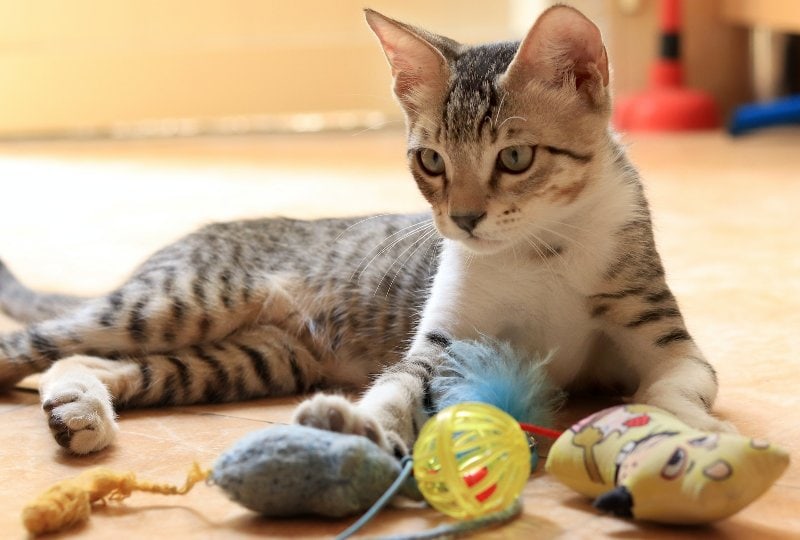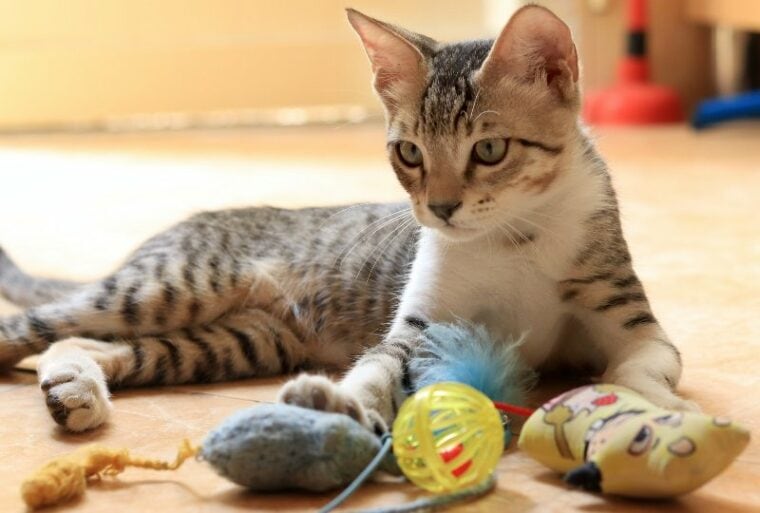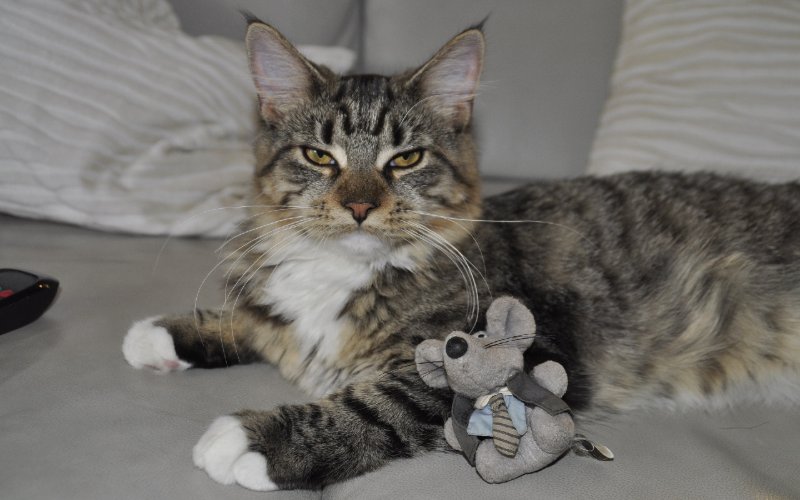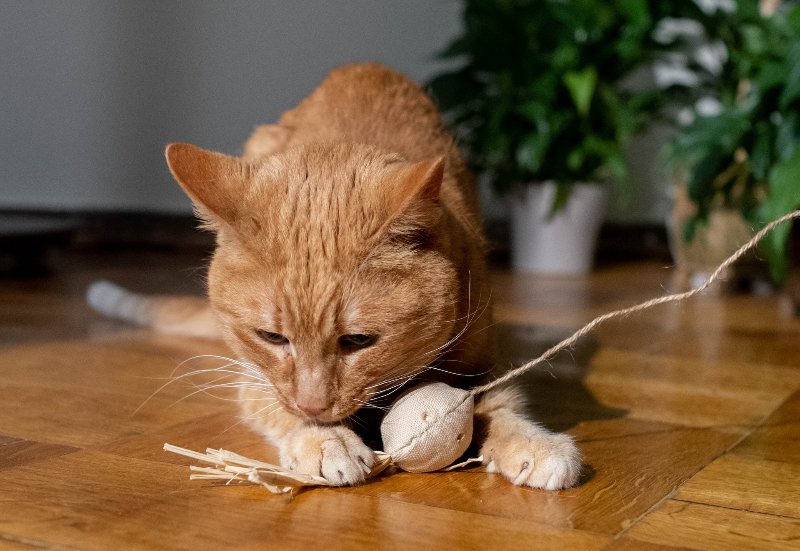- October 31, 2023
Why Do Cats Sit on Their Toys? 5 Common Reasons


Cats are playful creatures, and many enjoy interacting with toys for enrichment and exercise. However, you might notice your cat displaying odd behaviors as they play, such as sitting on their toys.
Some cat owners accept their pet’s quirks without question, but if you want to know why your cat treats their toys like a sofa, we have you covered. Here are five common reasons why cats sit on their toys.

The 5 Reasons Cats Sit on Their Toys
1. They’re Claiming the Toy
One common reason your cat sits on their toys could be because they are claiming them and marking them as their territory. Cats have scent glands under their tail, and sitting on the toy is one way to transfer the odor.
Other cats that find the toy will smell your kitty’s distinct scent and recognize that it is off-limits to them. This is especially likely to be why your cat sits on toys if you have a multi-pet household.

2. The Toys Smell Like You
Another reason your cat might sit on their toys is because they smell like you. Despite their reputation for being aloof, cats are more than capable of forming deep attachments to their owners.
If you and your cat have a strong bond, they may find your scent comforting and soothing, especially when you aren’t home. When you handle your cat’s toys, you leave your scent behind. Sitting or lying on the toy could be your cat’s way of feeling close to you.
3. The Toy Is Warm and Comfortable
No matter how warm you keep your house, it’s probably not enough for your cat, which thrives in higher temperatures than humans prefer. That’s why you’ll often find your cat snoozing on a heating vent or in a patch of sunlight.
Cats love soft, warm spots to cuddle up in, and some toys, especially stuffed ones, could suit this purpose. You also may have noticed that cats enjoy snoozing in unusual spots, including ones that seem too small to be comfortable.

4. They Are Guarding the Toy
Your cat might be sitting on their toys to protect them from other pets or people. Many cats enjoy playing with other pets or having you toss their toys for them to chase. However, that doesn’t mean they can’t also get possessive of them and try to protect them.
Cats that share their home with other animals are more likely to display guarding behavior. It can also occur in cats who’ve been teased by having their toys taken away, possibly by kids who don’t know better. Teach your kids never to tease their pets or take away their belongings.
5. They Are Treating the Toy Like Prey
One of the most important reasons cats play with toys is to perform instinctive behaviors like stalking and “killing” prey. A cat sitting on their toy may treat it like a prey object.
Cats often play with their prey before killing and eating it. The cat might also check to see if their “prey” is dead or just playing dead. However, hungry cats don’t usually play with their food, so if you notice your cat sitting on their toys around dinner time, it’s probably for another reason.

What Types of Toys Should I Get My Cat?
Like children, cats have preferences for various toys, and you may need to experiment to find the ones your pet enjoys the most. Generally, it’s best to get your cat several toys for self-guided and interactive play. Focus on toys that allow your cat to get exercise and safely perform instinctive behaviors.
For example, teaser wands are an excellent option to allow your cat to chase and stalk prey. They are ideal for daily play and bonding sessions with you. When you aren’t home, you’ll want your cat to have small toys they can chase or bat around, such as balls or stuffed mice.
Cats with mobility challenges may prefer a puzzle toy or self-contained toy they can bat without moving as much. And, of course, your cat will need a scratching post, such as the Hepper Hi-Lo Scratcher, to keep their claws healthy and satisfy their urge to scratch safely.


Conclusion
If you find your cat sitting on their toys, one of the five reasons we discussed could be to blame. Sitting on toys might seem strange, but it’s usually not a cause for concern. However, if your cat seems less active than usual and less interested in playing with their toys, there could be something wrong. It’s best to make an appointment with your veterinarian to have your kitty checked out.
Featured Image Credit: Noor Khalafy, Pexels
Tags
What do you think?
Related Articles

New Puppy Checklist: Gear You’ll Need for Your New Dog
Getting a new puppy is really exciting, but before you welcome them home, it’s important to prepare your space for them. Since puppies need a

How Big Do Mini Poodles Get? Vet Reviewed Average Weight & Growth Chart – Dogster
The information is current and up-to-date in accordance with the latest veterinarian research. Learn more » When you buy a Miniature Poodle, you might not

Can Police Dogs Smell Nicotine? Vet Verified Facts & Info – Dogster
The information is current and up-to-date in accordance with the latest veterinarian research. Learn more » While cigarette sales have been declining steadily for decades,

How Old Is 5 in Dog Years? Vet-Approved Guide to Each Size of Dog – Dogster
The information is current and up-to-date in accordance with the latest veterinarian research. Learn more » A common method for calculating a dog’s age is

